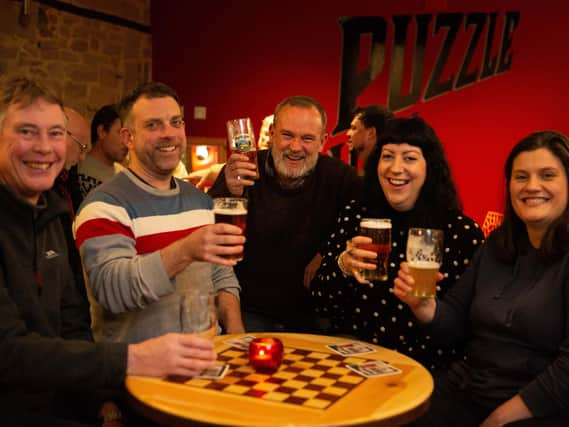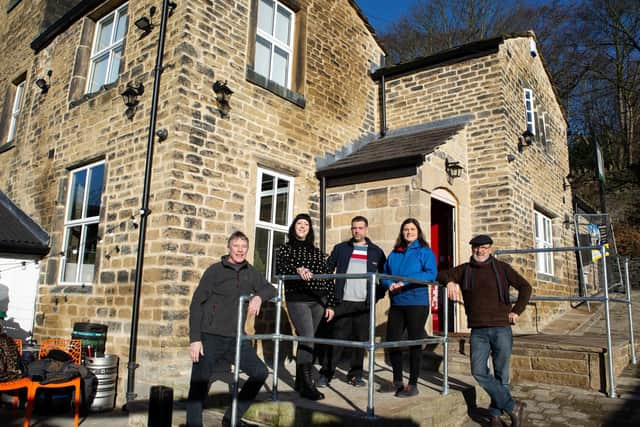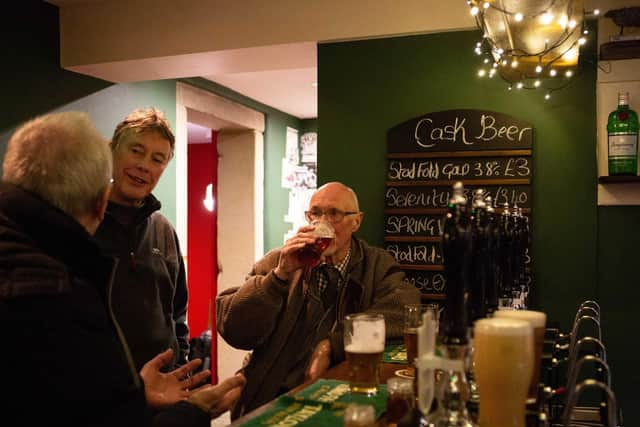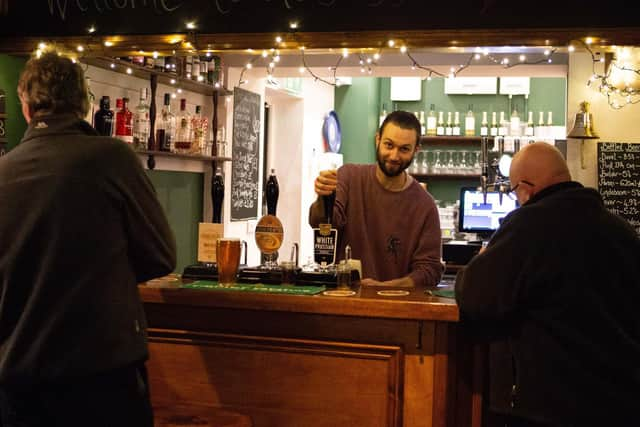Sheffield social enterprise helps tackle pub closures


But the trend appears to be levelling off, thanks to the real ale boom, new legislation, and a social investment organisation based in Sheffield.
Key Fund is one of several partners involved with More Than A Pub, a programme that provides business development support to enable the community ownership of pubs across England.
Advertisement
Hide AdAdvertisement
Hide AdJointly funded by Power to Change and the Ministry for Housing, Communities and Local Government, the programme is led by Plunkett Foundation and partners include Pub is the Hub, Cooperative & Community Finance, the British Beer and Pub Association and Camra.


Key Fund leads on delivery in Yorkshire, the North and Midlands, and has helped create a model for finance that’s been replicated across the UK as best practice.
One of its most recent success stories is the Puzzle Hall Inn in Sowerby Bridge, West Yorkshire. Formerly a much-loved hub for artists and performers, it closed in 2016 and in an all-too-familiar turn of events, the pub company that owned the property had set the lease so high that it was not financially viable for a tenant.
As a result, the 17th-century pub had stood empty and fallen into dire disrepair.
Advertisement
Hide AdAdvertisement
Hide AdBut then, a group of the pub’s regulars banded together and hatched a plan to save the Puzzle. One of them, Netty Berry – who had managed a pub in a neighbouring village – knew she had to be involved as soon as the idea was floated.


“I’d like to say it was some sort of noble thing, but actually we’d had a few pints one night and somebody suggested that we look at opening the pub as a community and we took it from there,” she says.
The volunteers had the property declared an asset of community value (ACV) and formed a Community Benefit Society (CBS) with the aim of reopening the Puzzle as a viable business. But after a year of fruitless negotiations with the property company, the CBS was given an ultimatum to put in an offer for the pub within four days.
Incredibly, the team raised £90,000 in three days via a community share offer and in April 2018 the semi-derelict pub was bought for £66,000. A total of £173,000 was raised from 240 community investors and support secured from the Plunkett Foundation and the Key Fund, which gave a £100,000 grant and loan package.
Advertisement
Hide AdAdvertisement
Hide Ad“One of the most impressive things about the Puzzle was the speed and intensity of support when the campaign launched,” says Dave Thornett, business development manager at Key Fund.


“When the community had the opportunity to buy it and needed to move pretty quickly to preserve that opportunity, the speed at which people got behind it was both surprising and impressive. That moved on very, very quickly and people weren’t daunted by the scale of the challenge.”
After comprehensive refurbishment – the copper cables had been stolen and the roof was badly damaged – the Puzzle reopened its doors for the first time in December 2019 and hosted its first music gig in January.
Ms Berry says: “We’re hoping it will impact the area really positively, not just from a community or employment point of view, but also for other local businesses. We’ve got plenty of great breweries locally, and some superb food vendors. We hope to work with them to offer some great quality, interesting products.”
Advertisement
Hide AdAdvertisement
Hide AdThe plan is to see the building become a community hub outside of service hours: “It might be a mums’ and babies’ music group, yoga, hot desking for lone workers or a dementia café – the space will be there so why not use it? Sowerby Bridge would definitely benefit from this – we want to reduce loneliness and isolation, and encourage community cohesion.”
But the Puzzle is far from an isolated case. Over 1,250 pubs have been listed as ACVs and there are scores of community-owned pubs around the country. In just its latest round of funding, which is open until September 2020, More Than A Pub has seen 28 pubs open under community ownership.
“Each of these individual community pubs tends to have three strands of core finance behind them: a loan from us, usually of about £50,000; a grant from Plunkett Foundation; and community shares,” says Mr Thornett.
“The shares never accrue in face value, so you can only ever get your money back that you paid for those shares. But interest is payable on them, and that tends to be between two and three per cent – which isn’t very significant for, say, a venture capitalist or a business angel, but actually if you compare it with an ISA it’s a pretty decent return currently.”
Advertisement
Hide AdAdvertisement
Hide AdEven though the rate of pub closure is slowing, factors including the smoking ban, high business rates and cheap supermarket alcohol continue to make publicans’ livelihoods precarious, and many more pubs seem destined to call time.
But pubs like the Puzzle, and the others that Key Fund has helped, show that closure need not be permanent. Dave Thornett advises anyone hoping to resurrect their local to speak to people who have already done it.
“What we’ve found is that the people who have done this are incredibly generous with their time and experience and are very, very happy to share that with other communities,” he says.
“There are now, I think, 140 community-owned pubs in the country, so you can relatively easily find somewhere that looks a bit like your community, so you can get a like-for-like comparison, and learn about some of the pitfalls and benefits.”
Advertisement
Hide AdAdvertisement
Hide AdMs Berry concurs, but is also keen that the example of the Puzzle should show others the way.
“Doing this is tough, but it’s worth it,” she says. “It’s been surprise how many people really do love a good pub, so if yours is a good pub, I’d go for it.”